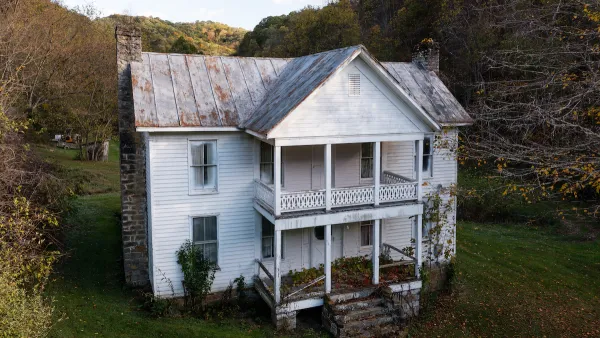As the U.S. Congress and Senate wrangle with each other over how to address the housing crisis, housing advocates worry that federal assistance- if and when it comes- will be inadequate.
"The saga [in Congress over how to address the foreclosure crisis] is playing out in a very different timeline than the negotiations held earlier in the year over another must-pass legislative package designed to prevent economic collapse. Under that deal, it took just days for Congress and the White House to agree on a tax rebate strategy, which went into effect in May. In contrast, the housing crisis is far more complex -- and far more contentious -- relegating progress to a crawl.
The delicate negotiations could mean that federal help for struggling homeowners won't arrive until late in the year -- too late for tens of thousands of families facing foreclosure. The possible delay concerns both liberal homeowner advocates and conservative economists, who agree that the free-falling market requires a stabilizing hand from Washington.
Meanwhile, affordable housing advocates have criticized both chambers for failing to include language empowering bankruptcy judges to force lenders to renegotiate troubled mortgages at lower rates. Instead, both the Senate and the House bills would allow lenders to make that choice themselves. The carrot for lenders is that they can get the bad loans taken off their books. But there are no sticks forcing participation -- a concession to conservatives that riles the left.
Additionally, observers are questioning the effectiveness of the proposals being considered. The Congressional Budget Office estimates the bills would help only about 500,000 homeowners over the next four years. 'It's a small percentage of those affected at a pretty steep price,' said David John, an economist with the conservative Heritage Foundation.
But in an election year, lawmakers are under the gun to act, even if only to avoid campaign-trail criticism. 'Many feel that they can't leave town without doing something,' [director of housing and credit policy at the Consumer Federation of America Allen]
Fishbein said. 'The question is whether it will address the problem or not. My guess is that they'll fall short.'
That means Washington will likely be forced to address the foreclosure crisis again."
FULL STORY: What Happened to Housing?

Analysis: Cybertruck Fatality Rate Far Exceeds That of Ford Pinto
The Tesla Cybertruck was recalled seven times last year.

National Parks Layoffs Will Cause Communities to Lose Billions
Thousands of essential park workers were laid off this week, just before the busy spring break season.

Retro-silient?: America’s First “Eco-burb,” The Woodlands Turns 50
A master-planned community north of Houston offers lessons on green infrastructure and resilient design, but falls short of its founder’s lofty affordability and walkability goals.

Test News Post 1
This is a summary

Analysis: Cybertruck Fatality Rate Far Exceeds That of Ford Pinto
The Tesla Cybertruck was recalled seven times last year.

Test News Headline 46
Test for the image on the front page.
Urban Design for Planners 1: Software Tools
This six-course series explores essential urban design concepts using open source software and equips planners with the tools they need to participate fully in the urban design process.
Planning for Universal Design
Learn the tools for implementing Universal Design in planning regulations.
EMC Planning Group, Inc.
Planetizen
Planetizen
Mpact (formerly Rail~Volution)
Great Falls Development Authority, Inc.
HUDs Office of Policy Development and Research
NYU Wagner Graduate School of Public Service


























